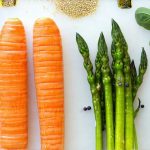The pursuit of optimal health often leads individuals towards dietary changes, with increased vegetable consumption frequently lauded as a cornerstone of wellbeing. While undeniably beneficial for countless reasons, an overabundance of raw vegetables – particularly when introduced rapidly or in large quantities – can surprisingly lead to digestive discomfort, manifesting most commonly as loose stools. This isn’t necessarily indicative of a problem with the vegetables themselves, but rather highlights the intricacies of our digestive systems and how they respond to increased fiber intake, specific compounds found within certain vegetables, and individual sensitivities. It’s a delicate balance between reaping nutritional rewards and avoiding unwanted gastrointestinal upset.
Many people assume that because raw vegetables are “healthy,” more is always better. This isn’t true for any food group, but it’s particularly relevant here because of the sheer volume often recommended in modern health discourse. Our bodies need time to adapt to significant dietary shifts, and a sudden influx of fiber-rich, complex carbohydrate-laden raw vegetables can overwhelm the digestive process, leading to issues like bloating, gas, cramping, and ultimately, looser stool consistency. Understanding why this happens is crucial for enjoying the benefits of a plant-rich diet without experiencing unpleasant side effects. It’s also essential to recognize that individual tolerances vary widely; what one person can comfortably digest, another may find problematic.
The Fiber Factor: A Double-Edged Sword
Fiber is undoubtedly a health hero. It supports gut health, aids in regular bowel movements, helps control blood sugar levels, and even contributes to feelings of fullness, which can be beneficial for weight management. However, there are different types of fiber – soluble and insoluble – and raw vegetables tend to be rich in insoluble fiber. Insoluble fiber doesn’t dissolve in water; instead, it adds bulk to the stool, accelerating its passage through the digestive system. While this is generally a positive thing, an excess can lead to rapid transit time, leaving less opportunity for nutrient absorption and potentially resulting in loose stools. The body simply hasn’t had enough time to process everything efficiently.
The key issue isn’t necessarily avoiding fiber, but rather managing its intake. A gradual increase in fiber consumption allows the gut microbiome – the community of bacteria living in our digestive tract – to adapt and develop the enzymes necessary to break down these complex carbohydrates effectively. When we suddenly introduce a large amount of raw vegetables, we overwhelm this system. Furthermore, incomplete digestion of insoluble fiber can cause fermentation in the colon, producing gas as a byproduct—another contributor to discomfort and altered bowel habits.
Consider this: cooked vegetables generally contain more digestible fiber than their raw counterparts. The cooking process partially breaks down the cell walls of plant cells, making it easier for our digestive system to access and utilize the nutrients within. This isn’t to say raw is bad; just different. It’s about understanding how your body responds and adjusting accordingly. You may also want to learn why your gut reacts specifically to cold, raw vegetables.
Navigating Individual Sensitivities & FODMAPs
Everyone’s gut microbiome is unique – a personalized ecosystem shaped by genetics, diet, lifestyle, and even stress levels. Consequently, sensitivities to certain vegetables or compounds within them will vary considerably. Some individuals may find themselves particularly sensitive to cruciferous vegetables (broccoli, cauliflower, cabbage), which contain glucosinolates that can be difficult for some to digest, leading to gas and bloating. Others might struggle with the fructans found in onions, garlic, and asparagus – these are types of FODMAPs.
FODMAPs stands for Fermentable Oligosaccharides, Disaccharides, Monosaccharides And Polyols. These are short-chain carbohydrates that are poorly absorbed in the small intestine. When they reach the large intestine, they are fermented by gut bacteria, producing gas and potentially causing digestive distress. A low-FODMAP diet is often recommended for individuals with Irritable Bowel Syndrome (IBS), but even those without IBS can experience symptoms from FODMAPs if their gut microbiome isn’t equipped to handle them effectively. Reducing the quantity of high-FODMAP raw vegetables – or cooking them, which alters their FODMAP content—can be a helpful strategy. If you suspect issues with bloating, consider why sugar cravings may play a role in chronic discomfort.
- Identifying trigger foods: Keeping a food diary can help pinpoint specific vegetables that consistently cause digestive upset.
- Gradual introduction: When introducing new vegetables, start with small portions and observe how your body responds.
- Consider cooking methods: Steaming, roasting, or sautéing can make vegetables easier to digest.
The Role of Digestive Enzymes & Gut Health
Our bodies naturally produce enzymes that help break down food, but enzyme production can be influenced by various factors, including age, diet, and overall health. Insufficient digestive enzyme activity can hinder the breakdown of complex carbohydrates in raw vegetables, leading to incomplete digestion and subsequent symptoms like loose stools. Supplementing with a broad-spectrum digestive enzyme may offer some relief for individuals struggling to digest large quantities of raw vegetables, but it’s crucial to consult with a healthcare professional before starting any new supplement regimen.
Beyond enzymes, the overall health of your gut microbiome plays a significant role in its ability to process fiber and other compounds found in vegetables. A diverse and balanced gut microbiome is better equipped to handle these substances without causing discomfort. Probiotic-rich foods (yogurt, kefir, sauerkraut) and prebiotic fibers (found in some cooked vegetables) can help support a healthy gut microbiome. A thriving gut ecosystem is more resilient and capable of efficiently digesting a wider range of foods. Digestive diagnostics may also reveal underlying factors contributing to digestive issues.
Hydration & Timing: Optimizing Digestion
Adequate hydration is essential for proper digestion, especially when increasing fiber intake. Fiber absorbs water, so if you’re not drinking enough fluids, the stool can become hard and difficult to pass—or, paradoxically, contribute to looser stools as it draws moisture from the intestines. Aiming for at least eight glasses of water per day is generally recommended, but individual needs may vary based on activity level and climate.
Timing also matters. Consuming large quantities of raw vegetables on an empty stomach can be particularly problematic because there are no other foods to slow down their transit time through the digestive system. Combining raw vegetables with healthy fats (avocado, nuts, seeds) or protein can help slow digestion and improve nutrient absorption. Eating them as part of a balanced meal is generally preferable to consuming them in isolation. It’s about creating an environment that supports optimal digestive function rather than overwhelming it. If you suspect your stomach may be emptying too slowly, best ways to check are available.
It’s important to reiterate – this isn’t about demonizing raw vegetables; they are incredibly nutritious and valuable components of a healthy diet. The goal is to find a balance that allows you to enjoy their benefits without experiencing unwanted side effects. Paying attention to your body, making gradual changes, and understanding your individual sensitivities will empower you to create a sustainable and enjoyable plant-rich eating pattern. Which vegetables are least likely to cause discomfort can also be helpful information for those with sensitive systems. And finally, don’t discount the impact of habits like chewing ice on your overall gut health.


















